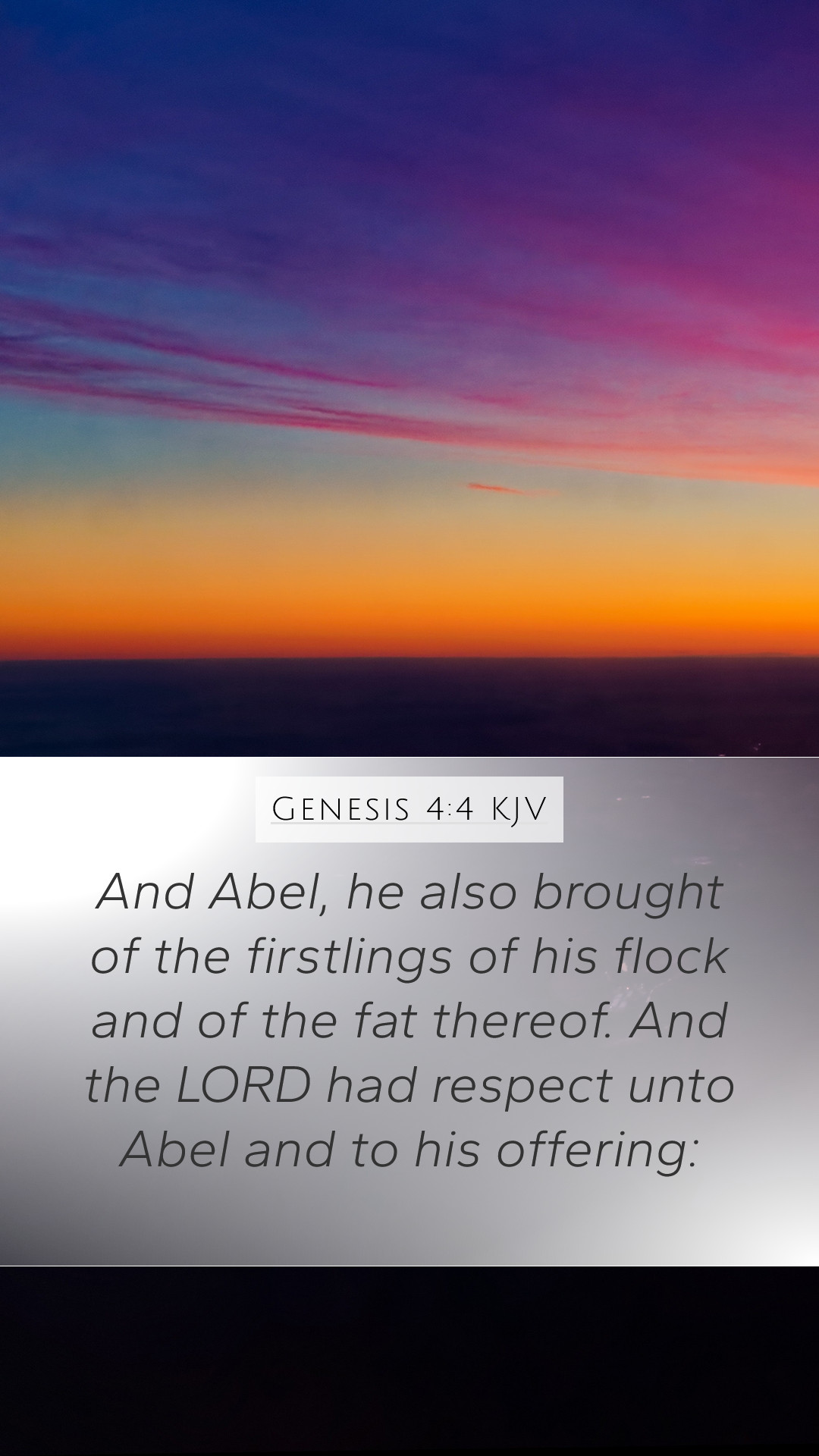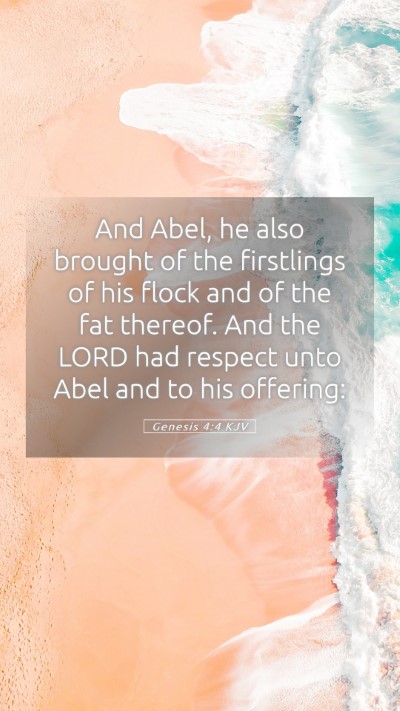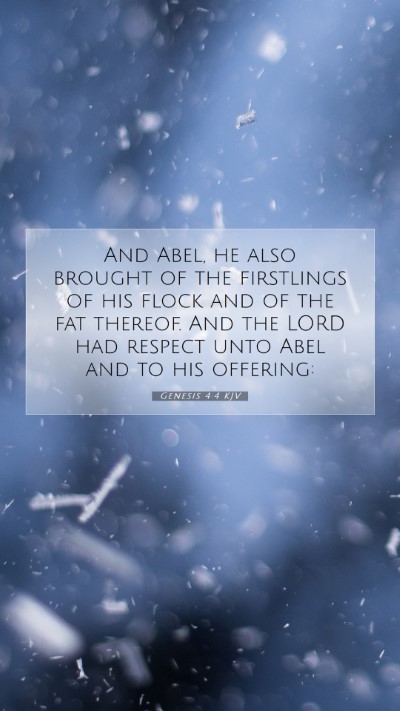Understanding Genesis 4:4: A Comprehensive Bible Verse Commentary
Genesis 4:4 states: "And Abel also brought of the firstlings of his flock and of the fat thereof. And the Lord had respect unto Abel and to his offering:"
This verse showcases the actions of two key figures in the early biblical narrative, Abel and Cain, and the differing receptions of their offerings to God. The significance of this text lies in its reflection on the nature of acceptable worship and offerings in the eyes of God.
Context and Background
The setting for Genesis 4:4 occurs soon after the creation of Adam and Eve, focusing on their sons, Cain and Abel. Each brother presents an offering to God: Cain from his agricultural produce, and Abel from the firstborn of his flock. Understanding this context is vital for interpreting the deeper theological implications of their offerings.
Bible Verse Meanings and Interpretations
-
Abel's Offering:
According to Matthew Henry, Abel's choice to offer the firstlings of his flock indicates his understanding of giving God the best. This act symbolizes a heart of devotion and reverence, which God accepts. The bloody sacrifice foreshadows the ultimate sacrifice of Jesus Christ, presenting a significant theme of redemption throughout Scripture.
-
Cain's Offering:
The presentation of Cain's offering is viewed through the lens of God’s preferences. Albert Barnes notes that Cain brought fruits of the ground, possibly indicating a lack of the best among his produce. This difference explores the idea that God looks not just at the act of giving, but the heart behind it.
-
Divine Approval:
The text emphasizes God's respect for Abel's offering. Adam Clarke suggests this approval is indicative of God's preference for faith-based offerings over mere ritualistic practices. Abel's sacrifice embodies faith, contrasting with Cain's possibly more self-serving gesture.
Theological Significance
The theological foundation laid in Genesis 4:4 provides a basis for understanding the principles of worship that resonate throughout both the Old and New Testaments. This passage introduces key themes such as the necessity of sincere worship, the importance of faith, and God's sovereign will in accepting offerings.
Key Themes:
-
Faith vs. Works:
This verse exemplifies the concept that true worship is based on faithfulness rather than merely following prescribed rituals.
-
God’s Favor:
The notion of God having respect for Abel touches on broader themes in Scripture about divine favor and the heart behind offerings.
-
Foreshadowing Christ:
Abel's offering can be seen as a foreshadowing of the ultimate sacrifice of Christ, linking the Old Testament to New Testament narratives.
Application to Daily Life
Recognizing the principle of bringing our best to God in worship can significantly impact a believer's spiritual journey. In light of Genesis 4:4, individuals are encouraged to reflect on the quality and intention behind their offerings to God, whether they be financial, service-oriented, or through acts of love and kindness.
Related Cross References
- Hebrews 11:4 - Discusses Abel's faith and greater acceptance by God.
- Genesis 22:13 - The offering of Isaac, continuing the theme of sacrifice.
- Malachi 1:8 - Addresses the quality of offerings presented to God.
Conclusion
In conclusion, Genesis 4:4 serves as an essential text for deepening our understanding of what is required in our relationship with God. It is a reminder that our offerings are an extension of our faith and respect toward the divine. By examining this verse within its context, we garner valuable insights for our spiritual lives, inspiring us to give our utmost to God and strive for sincere worship.


